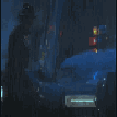|
timeandtide posted:I'm interested in non-fiction books about nuclear weapons in a few areas: 1) history, 2) the sociological/cultural effects on Japan post-war or the world at large, and 3) any sort of philosophical books about the topic. Also, any Internet sites, online articles, etc. are fine too if you have a good one to recommend. It can be more than a little esoteric, but I liked The Making of the Atomic Bomb by Richard Rhodes, and the follow-up Dark Sun. TMotAB is all about the logistics behind gathering the epic team necessary for the Manhattan Project. It can be very math/physics heavy, but there is a ton on information for anyone interested in the subject. When you think about it, there really hasn't been any time in history that saw such a gathering of utter masters of their fields. The gathering of Physicists, Chemists and Mathematicians is absolutely unprecedented in history. Dark Sun is more about the situation the US faced post-Manhattan Project, and the Cold War accelerating and the development of the Hydrogen Bomb. Like I said, I really liked The Making..., but Rhodes gets away from just showing the facts and gets into too much innuendo and hearsay in Dark Sun. It's still a really good book, but not as good as the first in my opinion. Hope this helps.
|
|
|
|

|
| # ¿ Apr 29, 2024 10:11 |
|
Ulstan posted:If you just finished Sherlock Holmes, I would recommend Lord Darcy. It's basically a parallel universe where Magic developed along with the industrial revolution, and Lord Darcy is the Sherlock Holmes of the day, only instead of Watson being a doctor, he's a magician, and together the two of them solve many magic related crimes. I found it interesting because it tried fairly hard to imagine a systematized and institutionalized magic system co-existing alongside industrial England, which isn't unique in and of itself, but the mystery slant was a new one to me. Good luck with this one, I've recommended this book to seven or eight people, and I keep getting it back with a "I just can't get into it". As a matter of fact, it's propping up my second monitor right now. And you're right on the money that the coexisting of magic and science in "Victorian England" is handled really well. A really good book that nobody has heard of.
|
|
|




